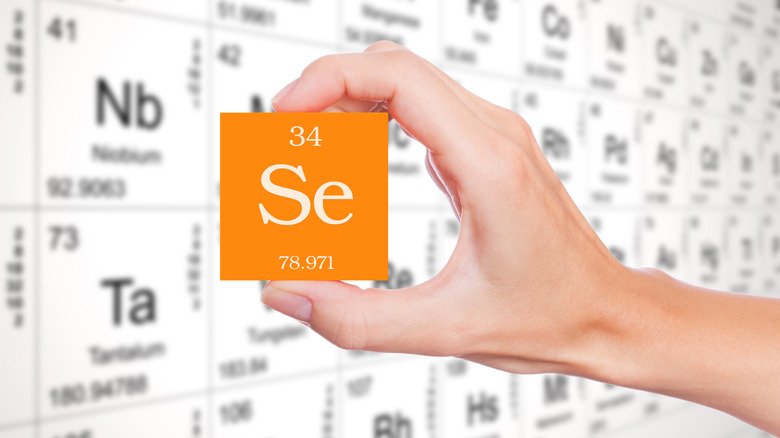What Happens When You Don't Get Enough Selenium
You might not hear much talk about selenium when it comes to nutrition, but it plays an important role in maintaining health, specifically when it comes to the immune system. The mineral is an antioxidant that also helps thyroid production, and studies show that it might play a part in protecting the body against certain cancers and heart disease. Other evidence shows that it might help your brain fight off Alzheimer's disease (via Healthline).
Some signs that you might not be getting enough selenium are fatigue, weight gain, and hair loss. Because selenium affects your thyroid, low levels can slow down thyroid production, which in turn impacts all of these areas. Likewise, if you find that you feel sick and run down more often than normal, it may have something to with a selenium deficiency because your immune system needs it to produce glutathione peroxidase, a chemical that helps remove toxins from the body (via The Healthy).
Selenium deficiencies can raise the risk for other diseases
A selenium deficiency can also increase the risk of other conditions, such as Keshan disease, which is linked to heart failure (via StatPearls). Low levels of the mineral are also linked to Keshan-Beck disease, a painful bone disorder. Symptoms of both of these conditions include nausea, vomiting, headaches, confusion, and seizures (via Harvard Health).
People living in areas where the soil does not contain much of the mineral, such as Russia and China, are more prone to developing a deficiency in selenium. People diagnosed with HIV and kidney failure can also develop a deficiency (via Harvard Health).
If you eat a healthy, balanced diet, you probably don't need to worry about a selenium deficiency. Nevertheless, adult men and women should aim for 55 micrograms of the mineral per day. Good sources of selenium include animal protein, such as seafood, beef, chicken, and organ meats. Other sources are Brazil nuts, beans, whole wheat bread, and lentils, per Harvard Health.


